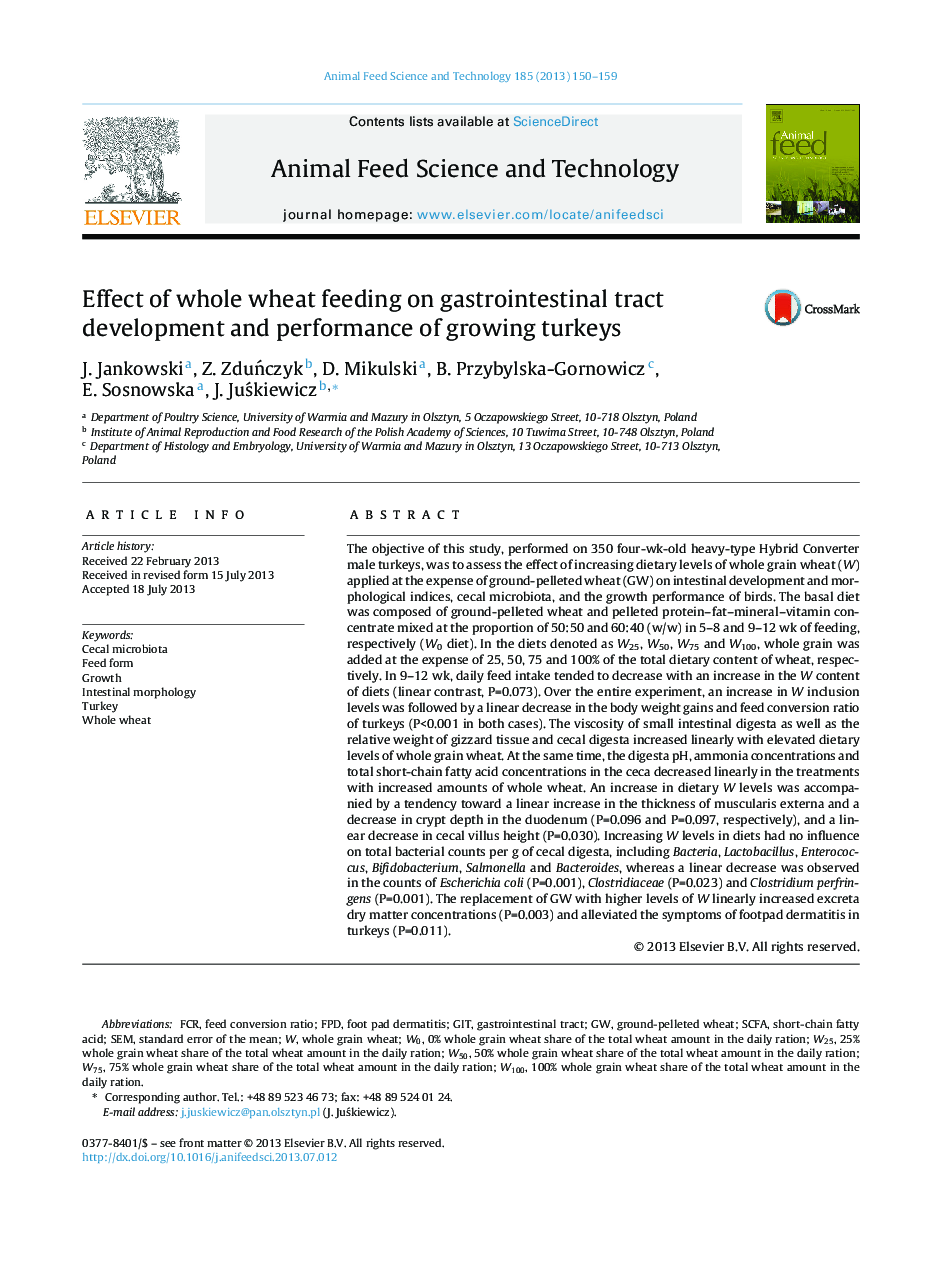| کد مقاله | کد نشریه | سال انتشار | مقاله انگلیسی | نسخه تمام متن |
|---|---|---|---|---|
| 2419629 | 1552401 | 2013 | 10 صفحه PDF | دانلود رایگان |

The objective of this study, performed on 350 four-wk-old heavy-type Hybrid Converter male turkeys, was to assess the effect of increasing dietary levels of whole grain wheat (W) applied at the expense of ground-pelleted wheat (GW) on intestinal development and morphological indices, cecal microbiota, and the growth performance of birds. The basal diet was composed of ground-pelleted wheat and pelleted protein–fat–mineral–vitamin concentrate mixed at the proportion of 50:50 and 60:40 (w/w) in 5–8 and 9–12 wk of feeding, respectively (W0 diet). In the diets denoted as W25, W50, W75 and W100, whole grain was added at the expense of 25, 50, 75 and 100% of the total dietary content of wheat, respectively. In 9–12 wk, daily feed intake tended to decrease with an increase in the W content of diets (linear contrast, P=0.073). Over the entire experiment, an increase in W inclusion levels was followed by a linear decrease in the body weight gains and feed conversion ratio of turkeys (P<0.001 in both cases). The viscosity of small intestinal digesta as well as the relative weight of gizzard tissue and cecal digesta increased linearly with elevated dietary levels of whole grain wheat. At the same time, the digesta pH, ammonia concentrations and total short-chain fatty acid concentrations in the ceca decreased linearly in the treatments with increased amounts of whole wheat. An increase in dietary W levels was accompanied by a tendency toward a linear increase in the thickness of muscularis externa and a decrease in crypt depth in the duodenum (P=0.096 and P=0.097, respectively), and a linear decrease in cecal villus height (P=0.030). Increasing W levels in diets had no influence on total bacterial counts per g of cecal digesta, including Bacteria, Lactobacillus, Enterococcus, Bifidobacterium, Salmonella and Bacteroides, whereas a linear decrease was observed in the counts of Escherichia coli (P=0.001), Clostridiaceae (P=0.023) and Clostridium perfringens (P=0.001). The replacement of GW with higher levels of W linearly increased excreta dry matter concentrations (P=0.003) and alleviated the symptoms of footpad dermatitis in turkeys (P=0.011).
Journal: Animal Feed Science and Technology - Volume 185, Issues 3–4, 25 October 2013, Pages 150–159